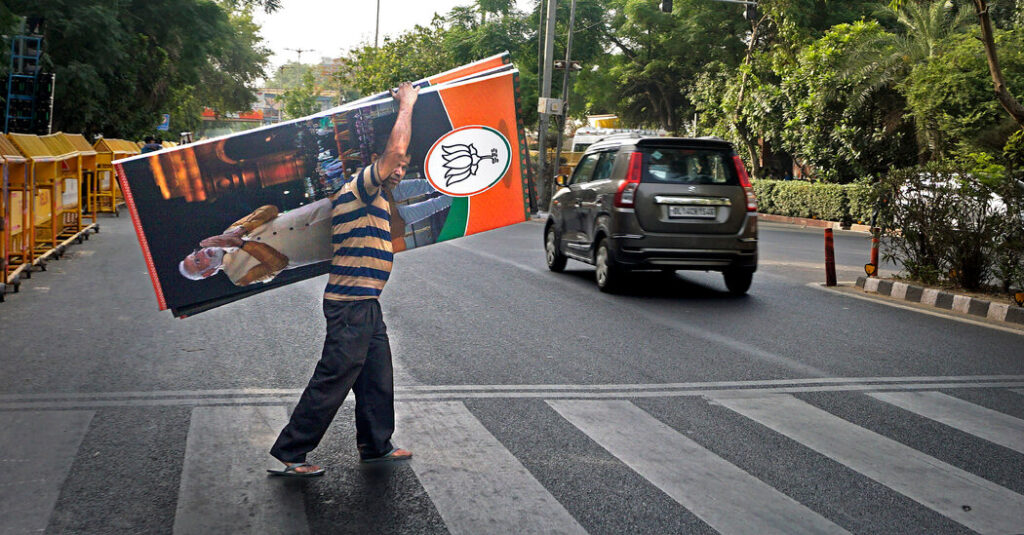Prime Minister Narendra Modi's ruling party will likely need support from minority allies to form a government under the rules of India's parliamentary system, early election results released on Tuesday showed.
In the 2019 general election that saw Modi win a second consecutive term, his Bharatiya Janata Party won 303 of the 543 seats in the parliament, far more than the 272 it needed to govern on its own.
This time, exit polls released over the weekend had suggested the BJP would again easily win more than 272 seats. But official results as of early Tuesday afternoon suggested the BJP would win around 240 seats.
That level of approval rating (44% of Lok Sabha seats) is a remarkable achievement in India or anywhere else, and these new figures should not prevent Modi from winning a third consecutive term as prime minister.
But the BJP's declining electoral support, which is far from Modi's goals and performance in the last election, is likely to have political repercussions.
At the very least, the BJP will need to rely more on junior members of its existing multi-party coalition, as the two most powerful parties do not share Modi's Hindu-first platform.
And if the ruling coalition fails to secure a majority, the BJP will be able to form a government only with the addition of new partners.
That may not be the case: As of Tuesday afternoon, the coalition was on track to win a slim majority in parliament — far short of its 400-seat target but enough to keep its current members in power.


